Saint of the Day 7 February – Blessed Pope Pius IX (1792-1878) Bishop of Rome, Writer. The longest regining Pope. Bl Pius was born as Giovanni Maria Mastai-Ferretti on 13 May 1792 in Senigallia, Italy and he died on 7 February 1878 in Vatican City of natural causes. He reigned from 16 June 1846 to the day of his death. He is the longest-reigning Pope in the history of the Church, serving for over 31 years. During his Pontificate, Pius IX convened the First Vatican Council (1869–70), which decreed Papal Infallibility and promulgated the Dogma of the Immaculate Conception, thus articulating a long-held belief that Mary, the Mother of God, was conceived without original sin. He conferred the title Our Mother of Perpetual Succour on a famous Byzantine icon from Crete entrusted to the Redemptorists. Pope Pius IX named three new Doctors of the Church: Hilary of Poitiers (1851), Alphonsus Liguori (1871), and Francis de Sales (19 July 1877). Patronages – Pius Seminary of Rome, Senigallia, Diocese of Senigallia, First Vatican Council. His body is incorrupt.
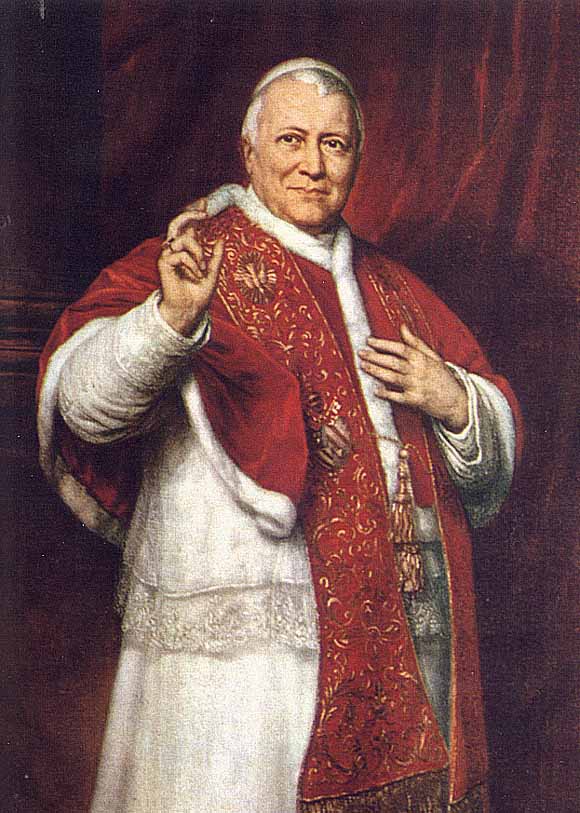
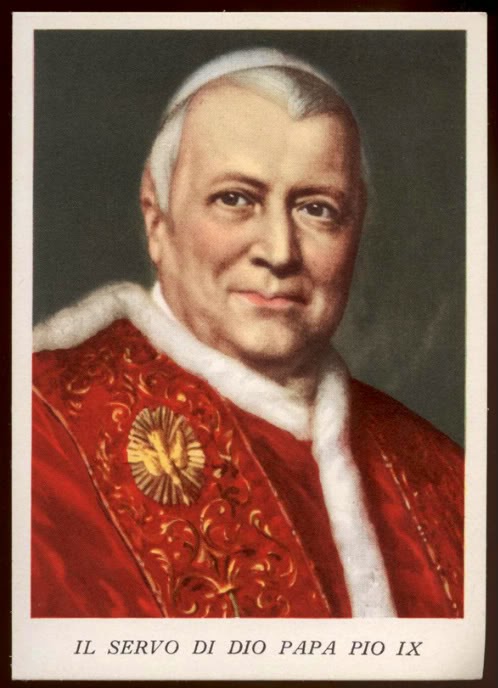
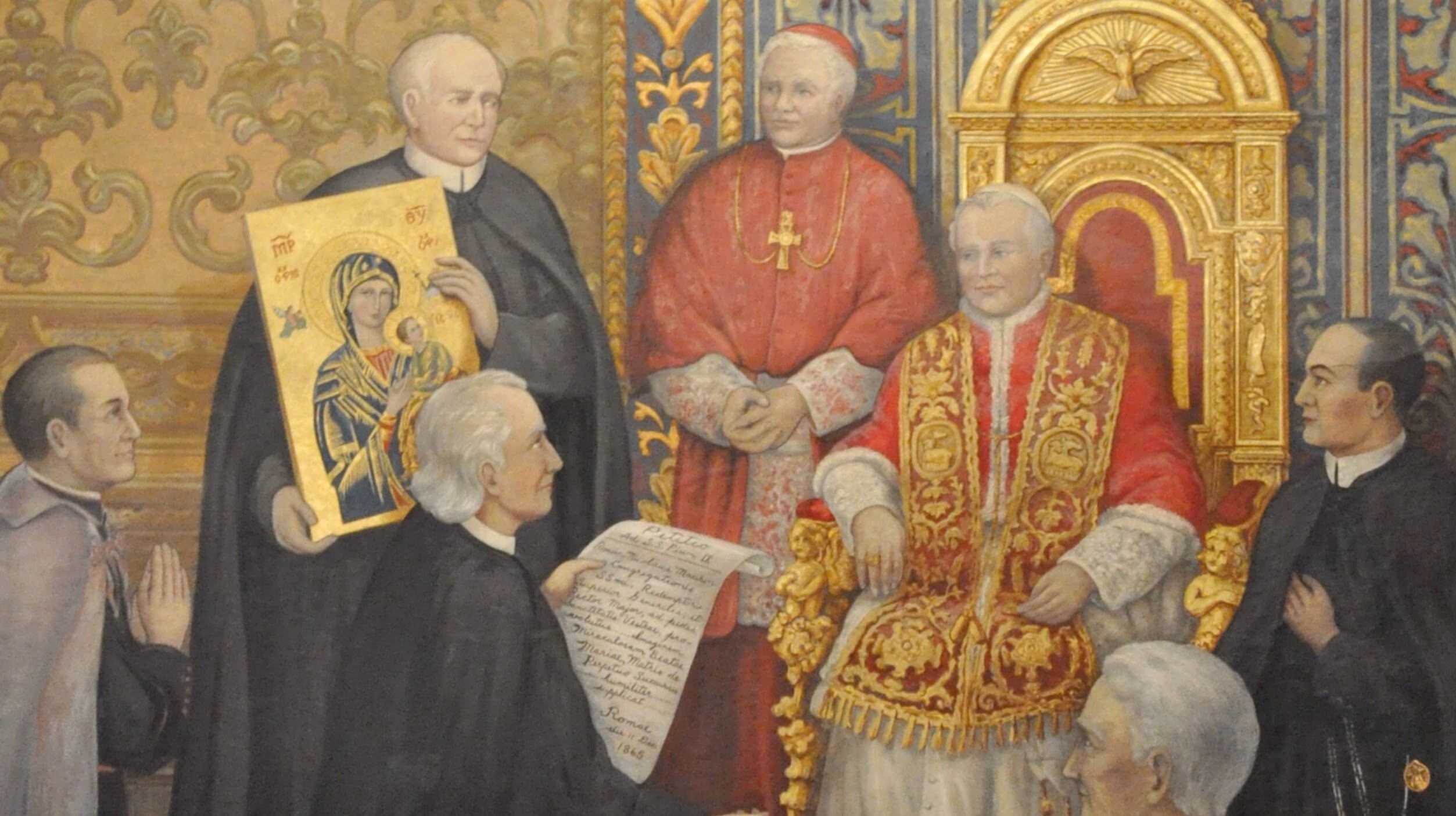
Bl Pope Pius IX was born in Senigallia, Italy, on 13 May 1792, the son of Gerolamo of the Counts Mastai Ferretti and Caterina Solazzi, of the local nobility. He was baptised on the day of his birth with the name Giovanni Maria. Of delicate physical constitution but of very lively intelligence, his childhood was marked by little voluntary mortifications and an intense religious life.
In 1809 he moved to Rome for higher studies. A disease not well diagnosed, which some called epilepsy, forced him to interrupt his studies in 1812. He was accepted into the Pontifical Noble Guard in 1815 but because of his illness he was immediately discharged. It was at this time that St Vincent Pallotti predicted that he would become Pope and that the Virgin of Loreto would free him eventually from the disease.
After serving briefly in the Tata Giovanni Educational Institute, he participated as a catechist in 1816 in a memorable mission in Senigallia and, immediately thereafter, decided to enter the ecclesiastical state. He was ordained a priest in 1819. Conscious of his noble rank, he committed himself to avoiding a prelatial career in order to remain only at the service of the Church.
He celebrated his first Mass in the Church of St Anne of the Carpenters at the Tata Giovanni Institute, of which he was named rector, remaining there until 1823. He was immediately recognised as assiduous in prayer, in the ministry of the Word, in the celebration of the liturgy, in the confessional and above all in his daily ministry at the service of the humblest and neediest. He admirably united the active and the contemplative life: ready for pastoral needs but always interiorly recollected, with strong Eucharistic and Marian devotion and fidelity to daily meditation and the examination of conscience.
In 1823 he left the institute to serve the Apostolic Nuncio in Chile, Mons. Giovanni Muzi. There he remained until 1825, when he was elected President of St Michael’s Hospice, a grand but complex institution in need of effective reform. To it Mastai applied himself with more than gratifying results but without ever neglecting his priestly duties. Two years later, at the age of 35, he was consecrated Archbishop of Spoleto. In 1831 the revolution which had begun in Parma and Modena spread to Spoleto. The Archbishop did not want the shedding of blood and repaired, as much as possible, the deleterious effects of the violence. When calm was restored, he obtained a pardon for all, even for those who did not merit it.
Another turbulent see awaited Mastai in Imola, where he was transferred in 1832. He remained an eloquent preacher, prompt in charity toward everyone, zealous for the supernatural as well as the material well-being of his Diocese, devoted to his clergy and seminarians, a promoter of education for the young, sensitive to the needs of the contemplative life, devoted to the Sacred Heart and to Our Lady, benevolent towards all but firm in his principles. In 1840 he received the Cardinal’s hat at the age of 48.
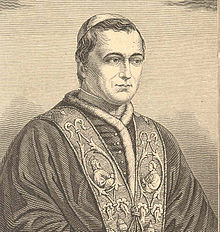
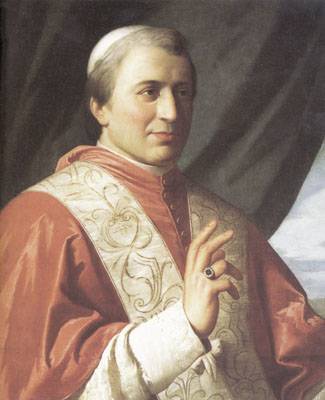
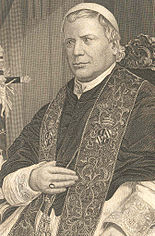

Despite having shunned honours, on the evening of 16 June 1846 Mastai found himself burdened with the greatest of them: he was elected Pope and took the name Pius IX.
He had a difficult pontificate, but precisely because of that he was a great Pope, certainly one of the greatest. Thoroughly aware of being the “Vicar of Christ” and responsible for the rights of God and of the Church, he was clear, simple consistent. He combined firmness and understanding, fidelity and openness.
He began with an act of generosity and Christian sensitivity: amnesty for political crimes. His first Encyclical was a programmatic vision but anticipated the “Syllabus”: in it he condemned secret societies, freemasonry and communism. In 1847 he promulgated a decree granting extensive freedom of the press and instituted a civil guard, the municipal and communal council, the Council of State and the Council of Ministers. From then on his interventions as Father of all nations and temporal Prince continued unabated.



The question of Italian independence, which he sympathised with, did not set the Prince against the Pope, a fact that alienated the most intransigent liberals. The situation came to a head on 15 November when Pellegrino Rossi, the head of government, was killed and Pius IX had to take refuge in Gaeta. After the proclamation of the Roman Republic (9 February 1849), he moved to Portici and later returned to Rome (12 April 1850). He reorganised the Council of State, established the Council for Finances, granted a new amnesty, re-established the Catholic hierarchy in England and in Holland.
In 1853 he condemned Gallican doctrines and founded the well-known “Seminario Pio”. He established the Commission on Christian Archaeology, defined the dogma of the Immaculate Conception on 8 December 1854 and blessed the rebuilt St Paul’s Basilica which had been destroyed by fire in 1823.
In 1856 he approved the plan for railways in the Papal States and on 24 April 1859 inaugurated the first section between Rome and Civitavecchia. In 1857 he visited the Papal States and was welcomed everywhere with rejoicing. He sent missionaries to the North Pole, India, Burma, China and Japan.
Meanwhile dark clouds gathered over him with the Italian “Risorgimento”, the Piedmontese annexations that were dismantling the Papal States and the expropriation of the Legations. Suffering but undaunted, he continued to show his charity and concern for all. In 1862 he established a dicastery to deal with the concerns of Eastern-rite Catholics; in 1864 he published his Syllabus condemning modern errors; in 1867 he celebrated the 18th centenary of the martyrdom of Peter and Paul; in 1869 he received the homage of the entire world for the golden jubilee of his priestly ordination. Later that year he opened the First Vatican Ecumenical Council, the pearl of his pontificate, and closed it on 18 July 1870.
With the fall of Rome (20 September 1870) and of the temporal power, the saddened Pontiff considered himself a prisoner of the Vatican, resisting the “Laws of Guarantees”, but approving the “Work of Congresses”. He consecrated the Church to the Sacred Heart of Jesus, disciplined the participation of Catholics in political life with the Non expedit and restored the Catholic hierarchy of Scotland. Suffering from poor health, he gave his last address to the parish priests of Rome on 2 February 1878. On 7 February the longest pontificate in history ended with his holy death. His body is incorrupt. He was Beatified on 3 September 2000 by St Pope John Paul II. (vatican.va).
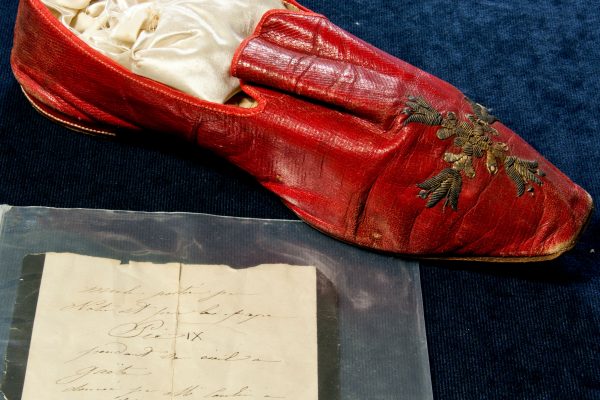
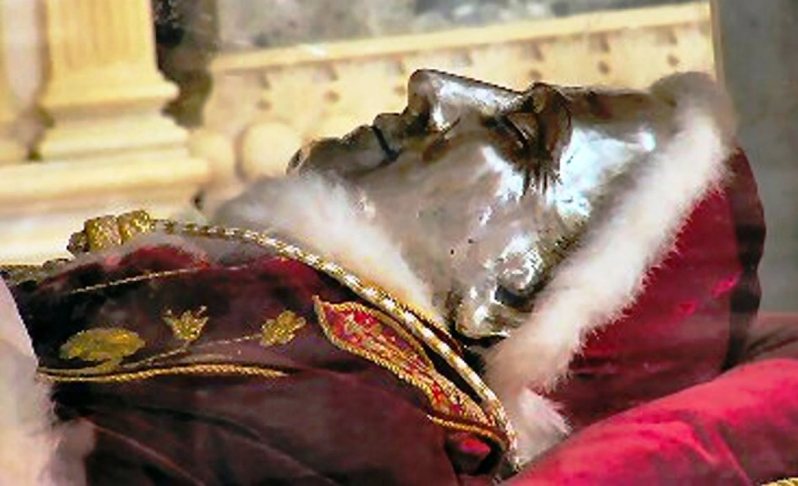
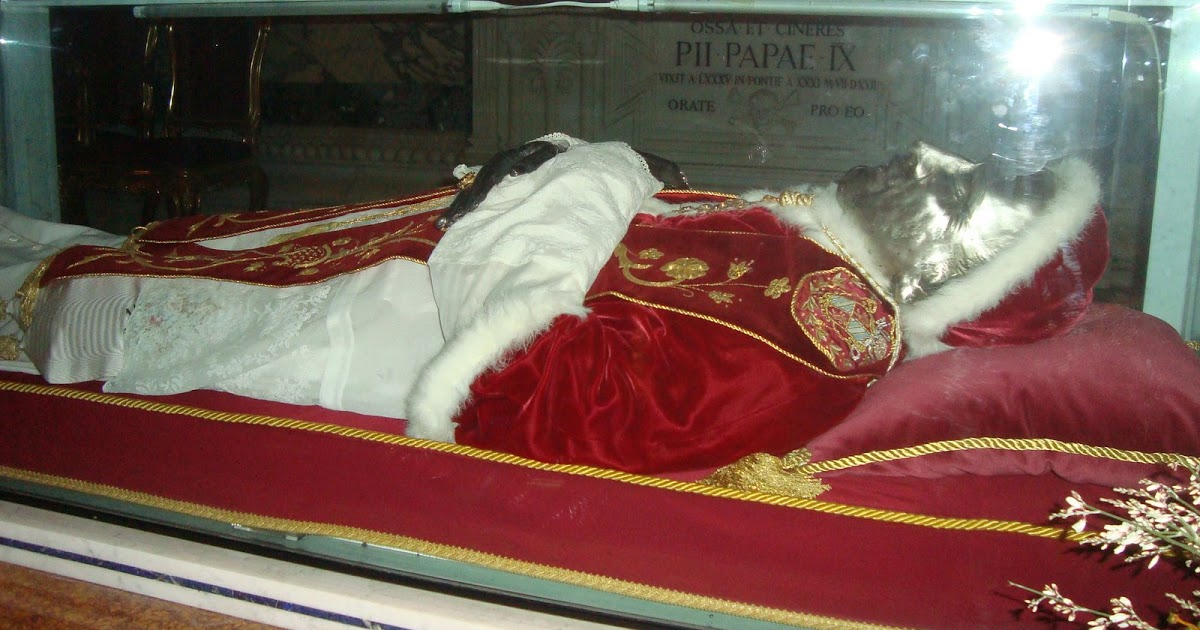
Writings
• Amantissimi Redemptoris – On Priests and the Care of Souls, by Pope Pius IX, 3 May 1858
• Apostolicae Nostrae Caritatis – Urging Prayers For Peace, by Pope Pius IX, 1 August 1854
• Beneficia Dei – On The Twenty-Fifth Anniversary of His Pontificate, by Pope Pius IX, 4 June 1871
• Cum Nuper – On Care for Clerics, by Pope Pius IX, 20 January 1858
• Cum Sancta Mater Ecclesia – Pleading for Public Prayer, by Pope Pius IX, 27 April 1859
• Etsi Multa – On the Church in Italy, Germany, and Switzerland, by Pope Pius IX, 21 November 1873
• Exultavit Cor Nostrum – On the Effects of the Jubilee, by Pope Pius IX, 21 November 1851
• Graves ac Diuturnae – On the Church in Switzerland, by Pope Pius IX, 23 March 1875
• Gravibus Ecclesiae – Proclaiming a Jubilee for 1875, by Pope Pius IX, 24 December 1874
• Incredibili – On Persecution in New Granada, by Pope Pius IX, 17 September 1863
• Ineffabilis Deus – The Immaculate Conception, by Pope Pius IX, 8 December 1854
• Levate – On the Afflictions of the Church, by Pope Pius IX, 21 October 1867
• Maximae Quidem – On the Church in Bavaria, by Pope Pius IX, 18 August 1864
• Meridionali Americae – On the Seminary for Native Clergy, by Pope Pius IX, 30 September 1865
• Neminem Vestrum – On The Persecution Of Armenians, by Pope Pius IX, 2 February 1854
• Nemo Certe Ignorat – On Discipline for Clergy, by Pope Pius IX, 25 March 1852
• Nostis et Nobiscum – On The Church In The Pontifical States, by Pope Pius IX, 8 December 1849
• Nullis Certe Verbis – On the Need for Civil Sovereignty, by Pope Pius IX, 19 January 1860
• Omnem Sollicitudinem – On The Greek-Ruthenian Rite, Pope Pius IX, 13 May 1874
• Optime Noscitis – On Episcopal Meetings, by Pope Pius IX, 5 November 1855
• Optime Noscitis – On The Proposed Catholic University Of Ireland, by Pope Pius IX, 20 March 1854
• Praedecessores Nostros – On Aid for Ireland, by Pope Pius IX, 25 March 1847
• Quae in Patriarchatu – On the Church in Chaldae, by Pope Pius IX, 16 November 1872
• Quanta Cura – Condemning Current Errors, by Pope Pius IX, 8 December 1864
• Quanto Conficiamur Moerore – On Promotion of False Doctrines, by Pope Pius IX, 10 August 1863
• Quartus Supra – On the Church in Armenia, by Pope Pius IX, 6 January 1873
• Qui Nuper – On Pontifical States, by Pope Pius IX, 18 June 1859
• Qui Pluribus – On Faith And Religion, by Pope Pius IX, 9 November 1846
• Quod Nunquam – On the Church in Prussia, by Pope Pius IX, 5 February 1875
• Respicientes – Protesting the Taking of the Pontifical States, by Pope Pius IX, 1 November 1870
• Saepe Venerabiles Fratres – On Thanksgiving For Twenty-Five Years Of Pontificate, by Pope Pius IX, 5 August 1871
• Singulari Quidem – On the Church in Austria, by Pope Pius IX, 17 March 1856
• Syllabus of Errors, by Pope Blessed Pius IX, 8 December 1864
• Ubi Nos – On Pontifical States, by Pope Pius IX, 15 May 1871
• Ubi Primum – On Discipline for Religious, by Pope Pius IX, 17 June 1847
• Ubi Primum – On The Immaculate Conception, by Pope Pius IX, 2 February 1849
• Vix Dum a Nobis – On the Church in Austria, by Pope Pius IX, 7 March 1874



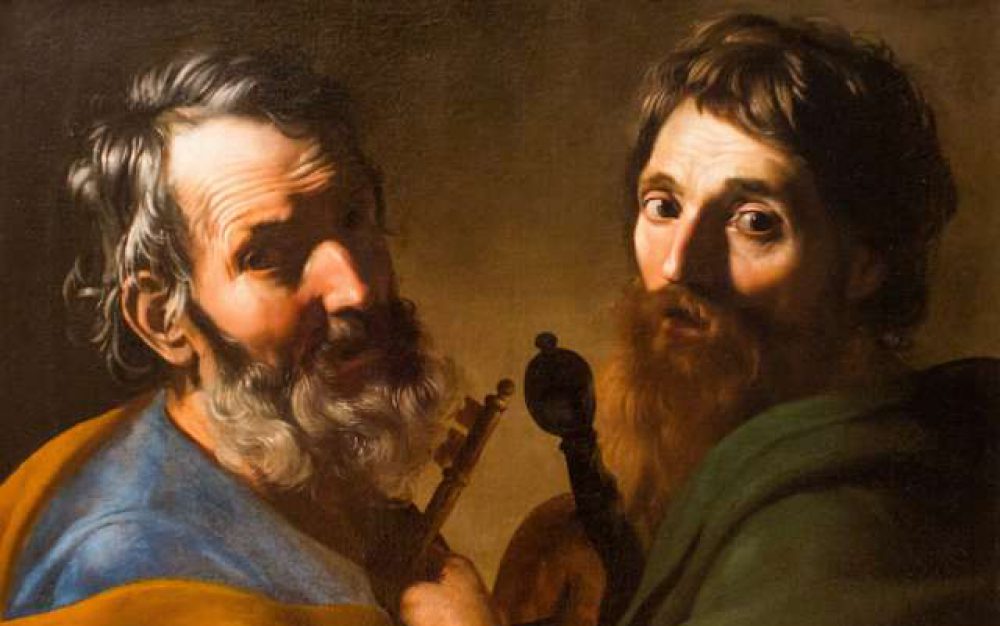
One thought on “Saint of the Day – 7 February – Blessed Pope Pius IX (1792-1878)”